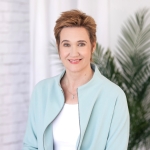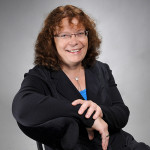
This final article in our current series on multilingual health information covers emergency phone numbers and health care in Germany, as well as US and Australian public health information available in multiple languages. This information may be helpful for doctors, refugees, support people and other groups such as migrants, exchange student, EU Blue Card holders and tourists.
Please see our first and second posts on multilingual health information for points 1–10.
11. Emergency phone numbers in Germany
The most important telephone numbers in Germany operate around the clock.
11.1 Fire and medical emergencies: 112
Calls to the 112 emergency line can be made in German or English. 112 is used for medical emergencies (e.g. suspected heart attack, stroke, serious accidents, etc.) to call an ambulance, and to call the fire service if there is a fire.
Flyers on the 112 emergency phone number and what to do in an emergency are available in 12 European languages on the Europe Direct website.
Languages: Austrian German, English, Finnish, Flemish, French, German, Greek, Hungarian, Portuguese, Romanian, Swabian German (yes, really – they are based in Stuttgart, where this dialect is spoken), Spanish and Turkish
We also found this useful poster explaining what to do if there is a fire, which can be used in accommodation for refugees.
Languages: Albanian, Arabic, Armenian, Dari, Dutch, English, German, Farsi (Persian), French, Hindi, Italian, Kurdish (Kurmancî), Polish, Portuguese, Russian, Serbian, Spanish, Swahili, Turkish and Urdu
11.2 Police: 110
Call 110 for the police in case of traffic accidents, theft or violence.
11.3 Medical on-call service: 116 117
In Germany, if you need medical attention for non-life-threatening health problems at the weekend or in the evening when medical practices are closed, you don’t need to go to the hospital accident and emergency department to see a doctor. Instead, you can dial 116 117 to find out which doctor or dentist is available via the medical on-call service. You will be connected directly to a central medical centre or a nearby doctors’ practice, where there is a doctor available on call. Dentists usually work in their own practice when they are on call. You can download a PDF with more information about the emergency number here: http://www.116117info.de/media/KBV_116117_Infoblatt2013_ENG.pdf. The PDF is available in the following languages: English, French, German, Russian, Spanish and Turkish
11.4 Other emergency phone numbers in Germany
The aponet German pharmacists’ health portal provides a list of poison hotlines and an emergency pharmacy finder in German, English and Arabic – Important phone numbers for emergencies (as of October 2015): http://www.aponet.de/arabisch/20151019-fuer-den-notfall-wichtige-rufnummern-im-ueberblick.html
12. Help at the pharmacy in Germany
The German ‘Pharmazeutische Zeitung’ (pharmaceutical newspaper) provides pharmacies with information on medicinal products in Arabic, as well as bilingual questionnaires in Arabic/German and Persian/German to help when consulting with customers. You can download them here: Arabic/German; Persian/German
13. Health insurance in Germany
Health insurance is compulsory in Germany. Most people have statutory health insurance, i.e. they are a member of one of the statutory health insurance providers (GKV) such as AOK, Barmer GEK, DAK or TK.
People who are self-employed or whose income is above a certain threshold can take out private health insurance. Within certain limits, private health insurance companies may pay doctors more for their services than statutory insurance companies. If you have private health insurance, you must first pay for your treatment yourself. You then submit the invoice to the health insurance company, who will reimburse you either fully or in part, depending on your health insurance contract.
Special provisions apply to medical care for refugees in Germany. Detailed information for international students and academics, school pupils, au pairs, foreign workers and immigrants is available on the independent consumer portal, 1a Verbraucherportal.
Languages: Arabic, Chinese, English, French, German, Italian, Polish, Portuguese, Russian, Spanish and Turkish.
The AOK provides more information on statutory health insurance, social security and an app for doctors’ visits and health promotion in the download centre on its multilingual website for immigrants.
14. Multilingual health information available in other countries
Sometimes a mutually understood language can provide further information. Some of the resources below could be adapted for use in German-speaking countries and beyond.
14.1 HealthReach (United States)
The HealthReach website is a real treasure trove of high-quality public health information in multiple languages. It is a collaborative resource managed by the US National Library of Medicine and the Center for Public Service Communications. Not all of the information is available in all languages (for example, there are only a few resources in German), and the information may need to be adapted before being used in other countries.
You can search for information on various topics in multiple languages (for example Amharic, Igbo, Nepali or Ukrainian, to name just a few). The database currently returns 194 results for Arabic, including information on dealing with post-traumatic stress disorder (developed for Iraqi refugees) and public health information for refugees.
14.2 Health Translations Directory (Australia)
The Health Translations Directory is an initiative by the Victorian Government of Australia. It provides extensive collections of links to reliable health information in multiple languages. The resources are published by a variety of Australian organisations and may need some adaptation if they are to be used in other countries.
The directory currently lists documents in 91 languages. The number of documents available in each language varies, for example: Arabic: 871; Chinese (simplified): 320; Farsi: 243; German: 76; Amharic: 70. You can search the directory by language or topic. When downloading resources in the various languages, it is a good idea to download the original English version as well.
Other articles in this series
This article is part of a series on multilingual health information for people in Germany. Have a look at the other articles in the series:
- Health information for refugees in multiple languages
- Multilingual health information in Germany – part two
- Multilingual health information in Germany and internationally
- Health care for refugees in Germany: legal aspects
—
Please note that this list is certainly not complete and does not constitute an assessment of the reliability of the translations provided. Volunteer interpreters working in health care settings may find the materials particularly useful. Please let us know if you have more information on reliable sources of multilingual health information!
By Imke Brodersen, English-German medical translator. Translated and adapted by Jayne Fox, German-English medical translator and editor. I’d love to hear your thoughts on this article. Head over to Google+ or Twitter to continue the conversation!


